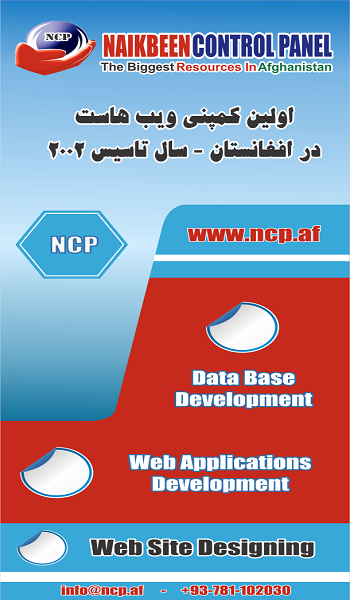About Mercy Corps
Mercy Corps is a leading global organization powered by the belief that a better world is possible. In disaster, in hardship, in more than 40 countries around the world, we partner to put bold solutions into action — helping people triumph over adversity and build stronger communities from within. Now, and for the future.
Country Summary
Mercy Corps works in places of transition, where conflict, disaster, political upheaval, or economic collapse present opportunities to build more secure, productive, and just communities. Providing emergency relief in times of crisis, we move quickly to help communities recover and build resilience to future shocks and promote sustainable change by supporting community-led and market-driven initiatives. Recognizing both the great potential and the complex challenges faced by Afghanistan, since 1986 Mercy Corps has been implementing a range of humanitarian assistance and development programs tailored to the specific needs of the country and of those communities where we work.
Program/Department Summary
EmpowerED (Elevating Trainer Expertise in Afghanistan) program, funded by GiZ (Deutsche Gesellschaft fuer internationale Zusammenarbeit) aims to increase access for vulnerable young people, including women, to needs-based quality vocational training within in-company apprenticeships or other on-the-job training opportunities. Implemented over 20 months, the program targets master trainers from private sector companies across Kabul, Parwan and Herat and establishes master trainer courses based on in-depth market assessment. The program will be implemented together with two national partners.
Accountability to Participants and Stakeholders
Mercy Corps team members are expected to support all efforts toward accountability, specifically to our program participants, community partners, other stakeholders, and to international standards guiding international relief and development work. We are committed to actively engaging communities as equal partners in the design, monitoring and evaluation of our field projects.
Success Factors
The successful candidate will have an ability to work independently, take initiative in tasks and self-learning, and be proactive in communications and development of professional relationships. S/he will be able to work closely with a diverse team of individuals in a highly intense and fluid work and security environment with demonstrated sensitivity to the people and issues in the country. Strict adherence to Mercy Corps security policies and procedure. Capacity to spark innovative and entrepreneurial approaches to programming and inspire groups to collaborate closely to design impactful high-quality programs. Desire and ability to learn and grown, both personally and professionally.
Ongoing Learning
In support of our belief that learning organizations are more effective, efficient and relevant to the communities we serve, we empower all team members to dedicate 5% of their time to learning activities that further their personal and/or professional growth and development.
Diversity, Equity & Inclusion
Achieving our mission begins with how we build our team and work together. Through our commitment to enriching our organization with people of different origins, beliefs, backgrounds, and ways of thinking, we are better able to leverage the collective power of our teams and solve the world’s most complex challenges. We strive for a culture of trust and respect, where everyone contributes their perspectives and authentic selves, reaches their potential as individuals and teams, and collaborates to do the best work of their lives.
We recognize that diversity and inclusion is a journey, and we are committed to learning, listening and evolving to become more diverse, equitable and inclusive than we are today.
Equal Employment Opportunity
Mercy Corps is an equal opportunity employer that does not tolerate discrimination on any basis. We actively seek out diverse backgrounds, perspectives, and skills so that we can be collectively stronger and have sustained global impact.
We are committed to providing an environment of respect and psychological safety where equal employment opportunities are available to all. We do not engage in or tolerate discrimination on the basis of race, color, gender identity, gender expression, religion, age, sexual orientation, national or ethnic origin, disability (including HIV/AIDS status), marital status, military veteran status or any other protected group in the locations where we work.
Safeguarding & Ethics
Mercy Corps is committed to ensuring that all individuals we come into contact with through our work, whether team members, community members, program participants or others, are treated with respect and dignity. We are committed to the core principles regarding prevention of sexual exploitation and abuse laid out by the UN Secretary General and IASC. We will not tolerate child abuse, sexual exploitation, abuse, or harassment by or of our team members. As part of our commitment to a safe and inclusive work environment, team members are expected to conduct themselves in a professional manner, respect local laws and customs, and to adhere to Mercy Corps Code of Conduct Policies and values at all times. Team members are required to complete mandatory Code of Conduct eLearning courses upon hire and on an annual basis.
Description of the Context
To address emergency multi-sector humanitarian needs of vulnerable crisis-affected populations in Afghanistan through the provision of WASH support, multi-purpose cash support, Shelter and Settlement and cash for work programming that aligns with BHA’s mission of saving lives, alleviating human suffering, and reducing the impact of disasters by helping people in need, MCA is implementing BHA funded project (Lifesaving integrated emergency response to vulnerable crisis-affected populations in Afghanistan) as part of a consortium with Medair and Solidarities International.
This initiative aims to support crises affected population in Afghanistan. The program seeks to aid 38600 individuals under WASH, 14700 individuals under MPCA, 4200 individuals under S&S and 14000 individuals under ERMS sectors in three provinces of Afghanistan (Herat, Kandahar and Balkh provinces). Under the four mentioned sectors the program is providing assistances as below:
Under the Lifesaving integrated emergency response to vulnerable crisis-affected populations in Afghanistan there are five main purposes.
Purpose 01: Reduced incidence and risk of communicable disease transmission AND reduced rates of mortality and morbidity caused by communicable disease transmission.
Mercy Corps anticipates that Purpose 01 will be achieved through:
Output 1.1: Hygiene Promotion and WASH NFIs: Provision of supportive peer-based social and behavior change communication on hygiene in the communities; provision of WASH NFIs to targeted households.
Output 1.2: Water supply: Rehabilitation of existing systems and/or establishment of new water networks.
Output 1.3: Sanitation: Rehabilitation of existing and/or construction of new sanitation facilities (including latrines and handwashing stations).
Output 1.4: Environmental Health: Provision of solid waste management services.
Purpose 2.0: Reduced incidence of food insecurity for the most vulnerable households and reduced reliance on negative coping strategies.
Mercy Corps anticipates that Purpose 2.0 will be achieved through multi-purpose cash assistance.
Purpose 3.0: Shock-affected households can cover their basic lifesaving needs.
Mercy Corps anticipates that Purpose 3.0 will be achieved through multi-purpose cash assistance.
Purpose 04: Reduced incidence of morbidity and mortality due to multisectoral winter needs.
Mercy Corps anticipates that Purpose 4.0 will be achieved through providing winterization NFI assistance.
Purpose 05: Affected population is able to receive temporary employment and meet basic needs while rebuilding community assets essential for (re)building livelihoods.
Mercy Corps anticipates that Purpose 5.0 will be achieved through providing opportunity for temporary engagement in cash for work activities.
The foundational results of BHA program improved WASH accessibility, increased food security, and providing emergency assistance to local communities will support the achievement of above-mentioned outcome and goals.
RATIONALE
Data Quality Assessment (DQA) involves assessing the precision, comprehensiveness, dependability, timeliness, and uniformity of data. It's a crucial stage in data handling and analysis because data quality profoundly influences the results and choices derived from it. In the process of data quality assessment, diverse techniques like data profiling, cleansing, validation, and enrichment are employed to gauge data quality. These techniques aid in pinpointing and rectifying any inaccuracies, disparities, or absent information that could compromise the dataset's accuracy and integrity.
The procedure of evaluating data quality encompasses a comprehensive review of the data, encompassing its origins, structures, metadata, and the underlying business logic employed in calculations. It also entails employing a variety of statistical and analytical methods to identify any trends or irregularities within the data. Ultimately, data quality assessment is vital in guaranteeing the credibility, precision, and dependability of data, all of which are imperative for informed decision-making and the extraction of significant insights.
OBJECTIVES
In accordance with MC’s MEL minimum Standard 11: Data Quality Audit/Assessment, all programs are required to conduct, document, and follow up on internal DQAs every six months, covering at least 5% of indicators that have undergone two rounds of data collection and analysis.
Mercy Corps Afghanistan has scheduled its first DQA from October 2023 to July 2024. This DQA aims to validate data evidence, calculations, and information from various sources in preparation for the mid-term evaluation. The specific objectives are outlined as follows:
SCOPE AND EXPECTED OUTCOMES
In order to guarantee transparency and objectivity in the DQA process, Mercy Corps Afghanistan intends to hire an individual consultant for carrying out the DQA and to enlist the Country MEL Manager to oversee the DQA process. The Country MEL Manager representative will also be tasked with training local staff on Mercy Corps' minimum standards, particularly those pertaining to DQA, and their significance within the MEL system.
The specific scope of the work may consist of:
The following outcomes anticipated from DQA:
RESPONSIBILITIES
Mercy Corps Afghanistan MEL team will:
DQA Lead (Consultant):
The consultant will report to the Country MEL Manager
The consultant will closely work with: BHA program team, MEL Officers and MEL Database Officer.
Selection Criteria
1. Relevant Experience: (25 Points)
2. Technical Expertise: (20 points)
3. Educational Background: (15 Points)
4. Analytical and Report Writing Skills: (15 points)
5. Communication and Interpersonal Skills: (10 points)
6. Cost effectiveness: (15 points)
Please click on the link Scope of Work (SoW) for Data Quality Assessment (DQA) for more deatils about the Requirements.
Submittals
1. Cover Letter:
2. Curriculum Vitae (CV):
3. Technical Proposal:
4. Financial Proposal:
5. Sample Reports:
6. Certification and Training Documentation:
Please click on the link Scope of Work (SoW) for Data Quality Assessment (DQA) for more deatils about the Requirements.

